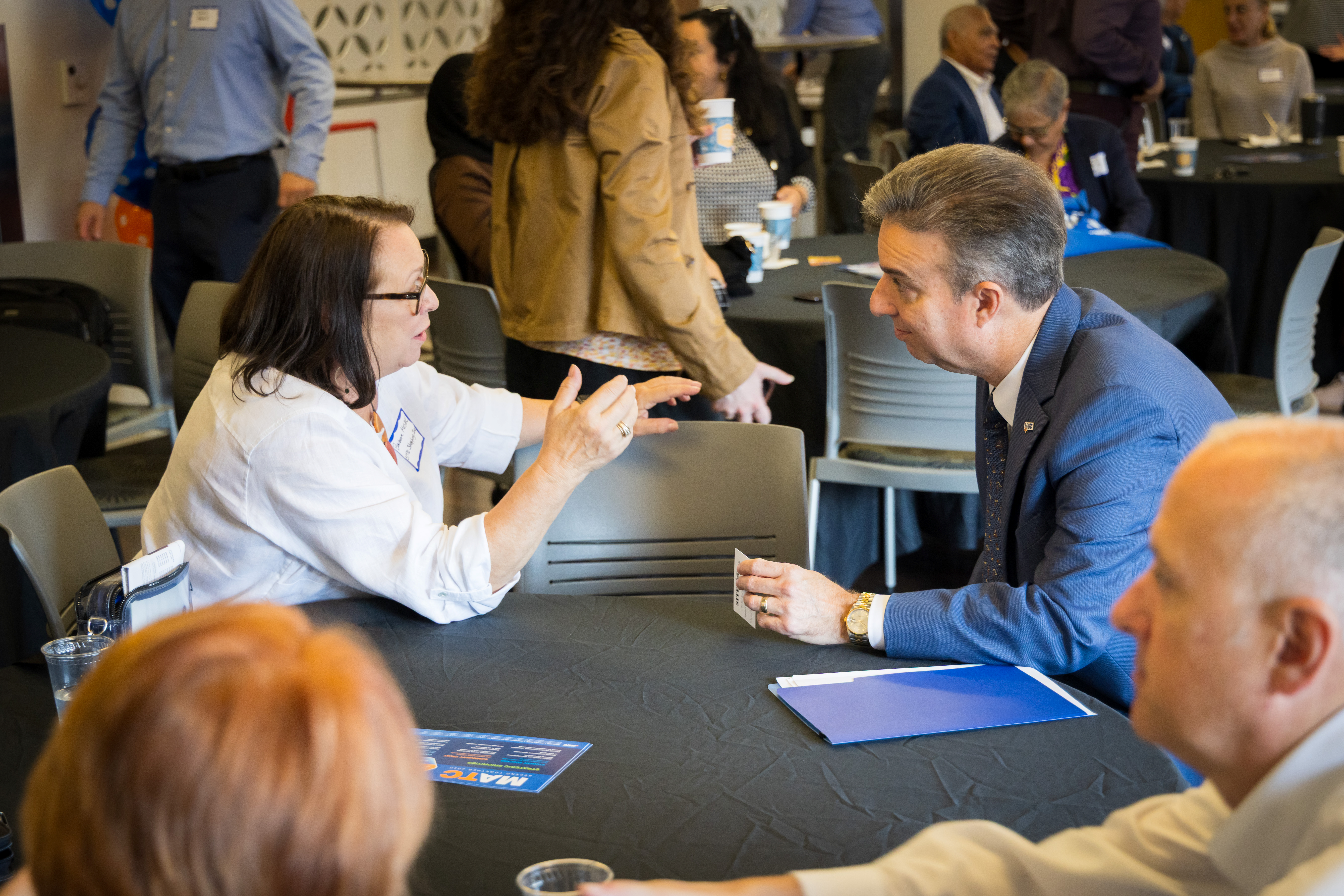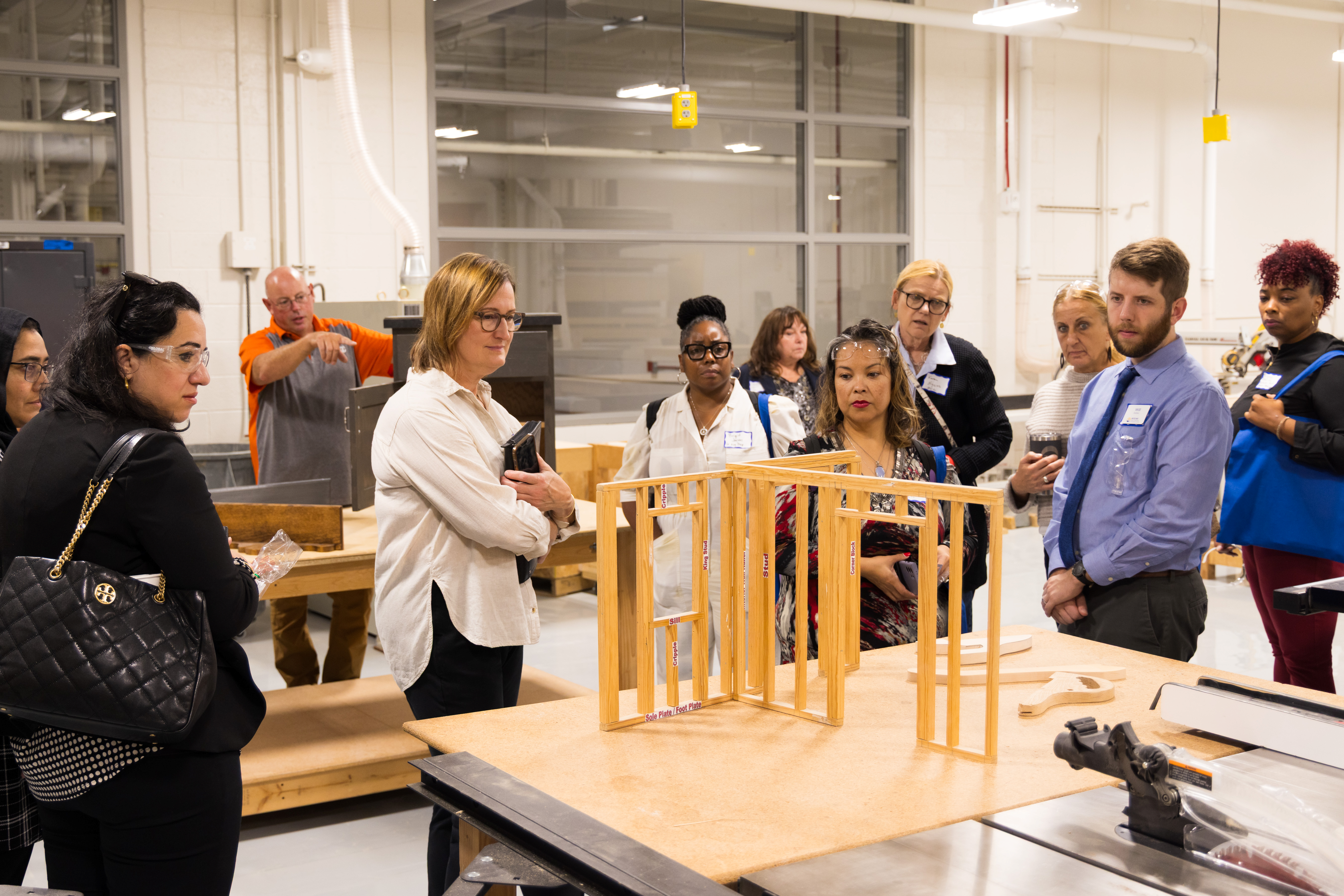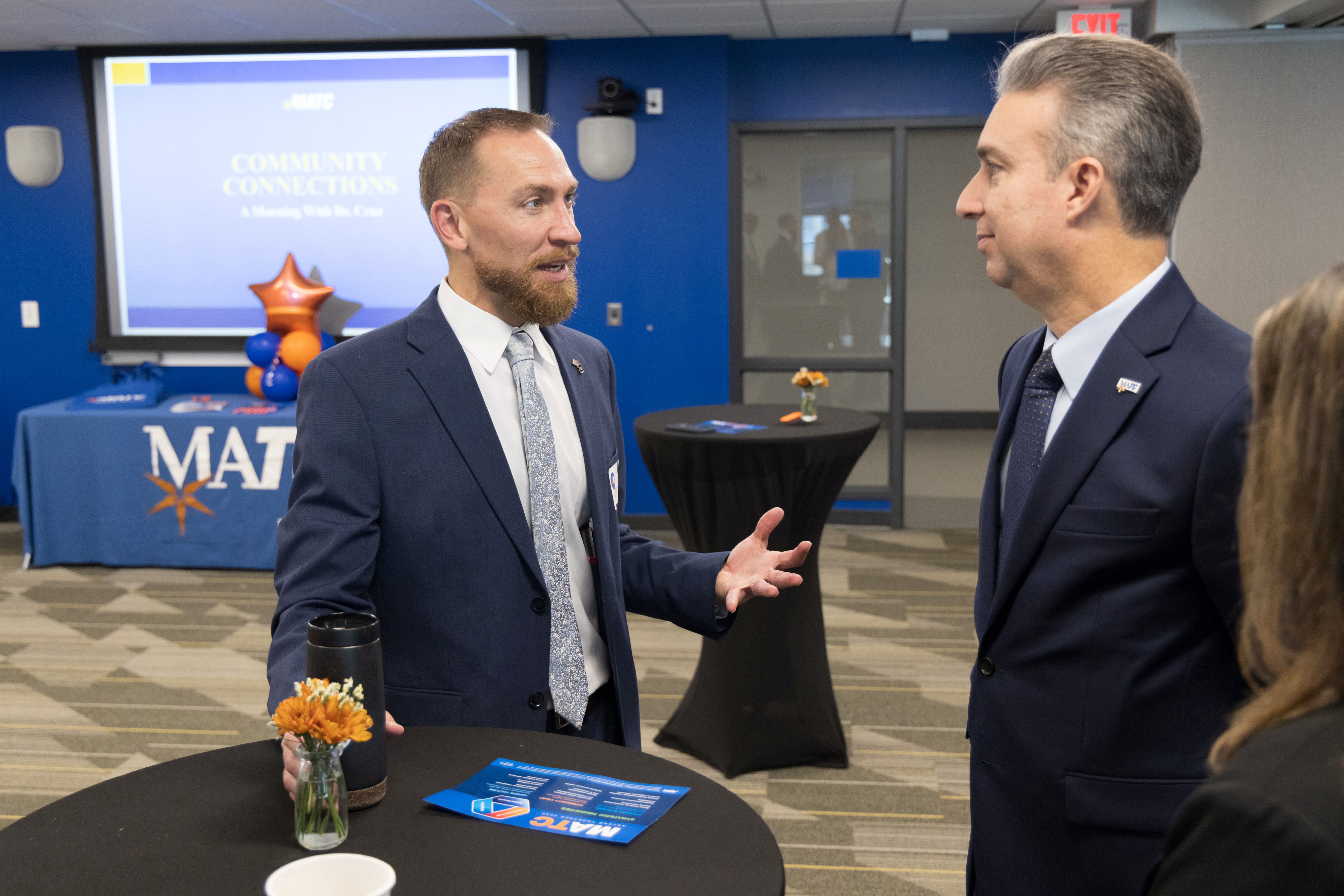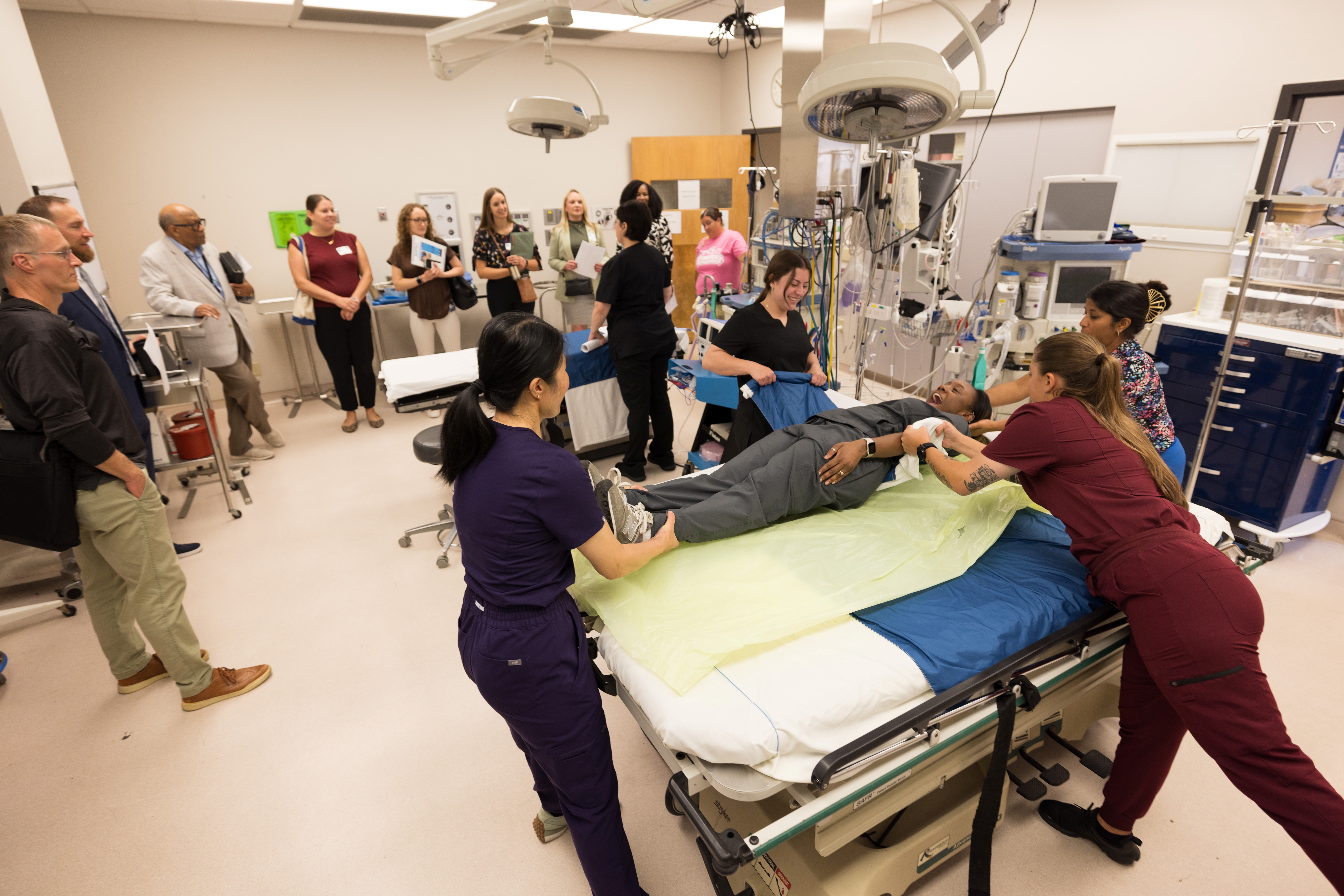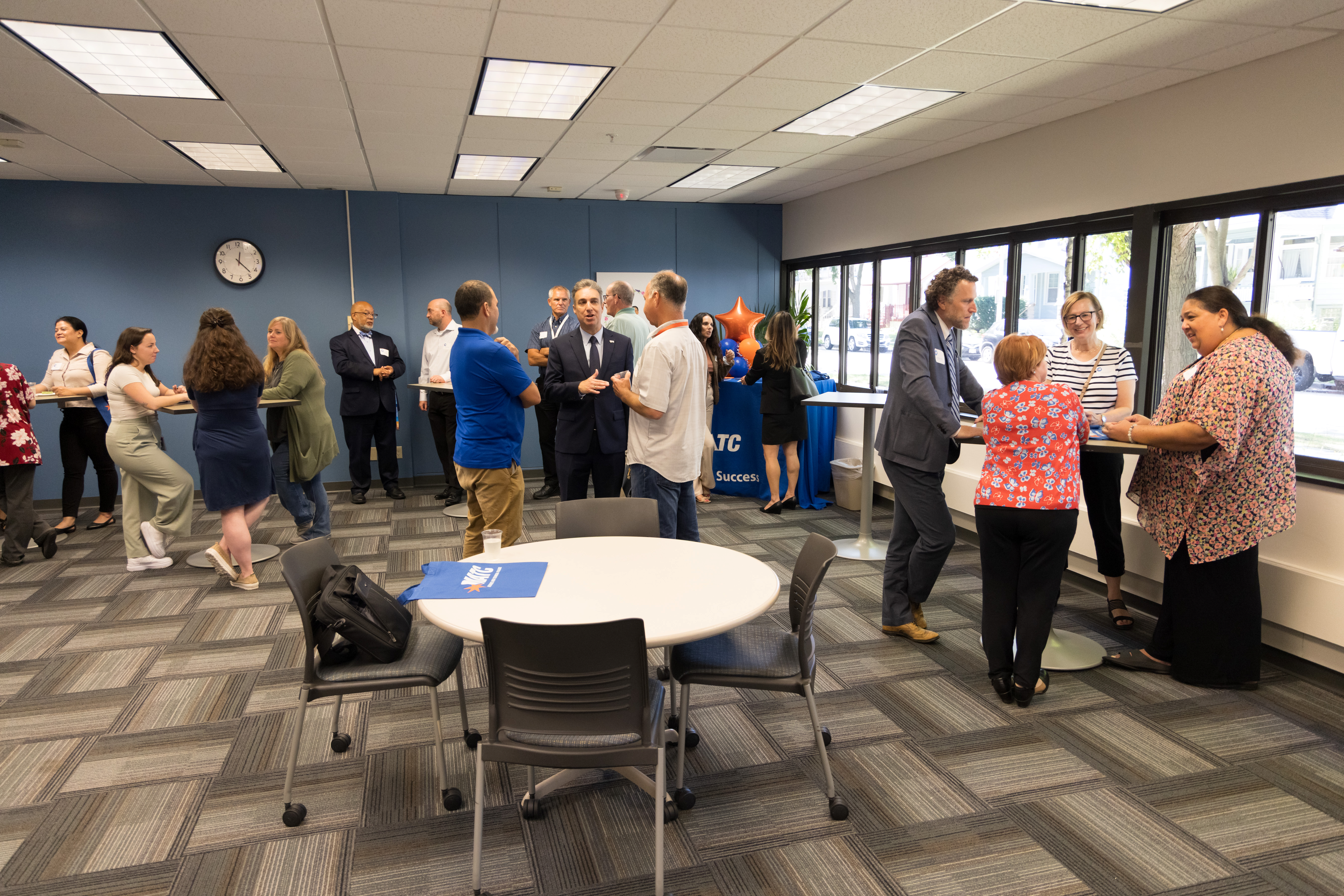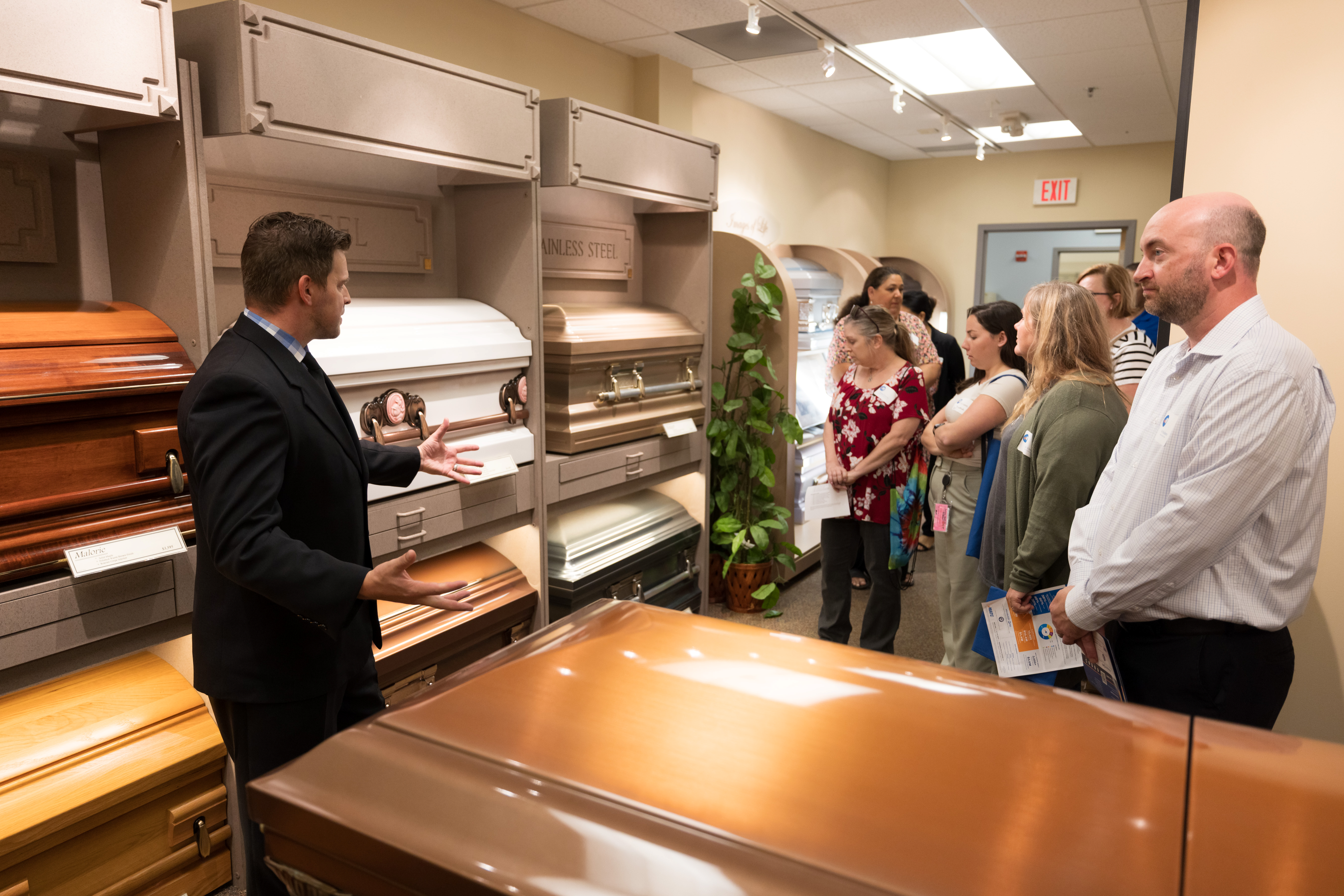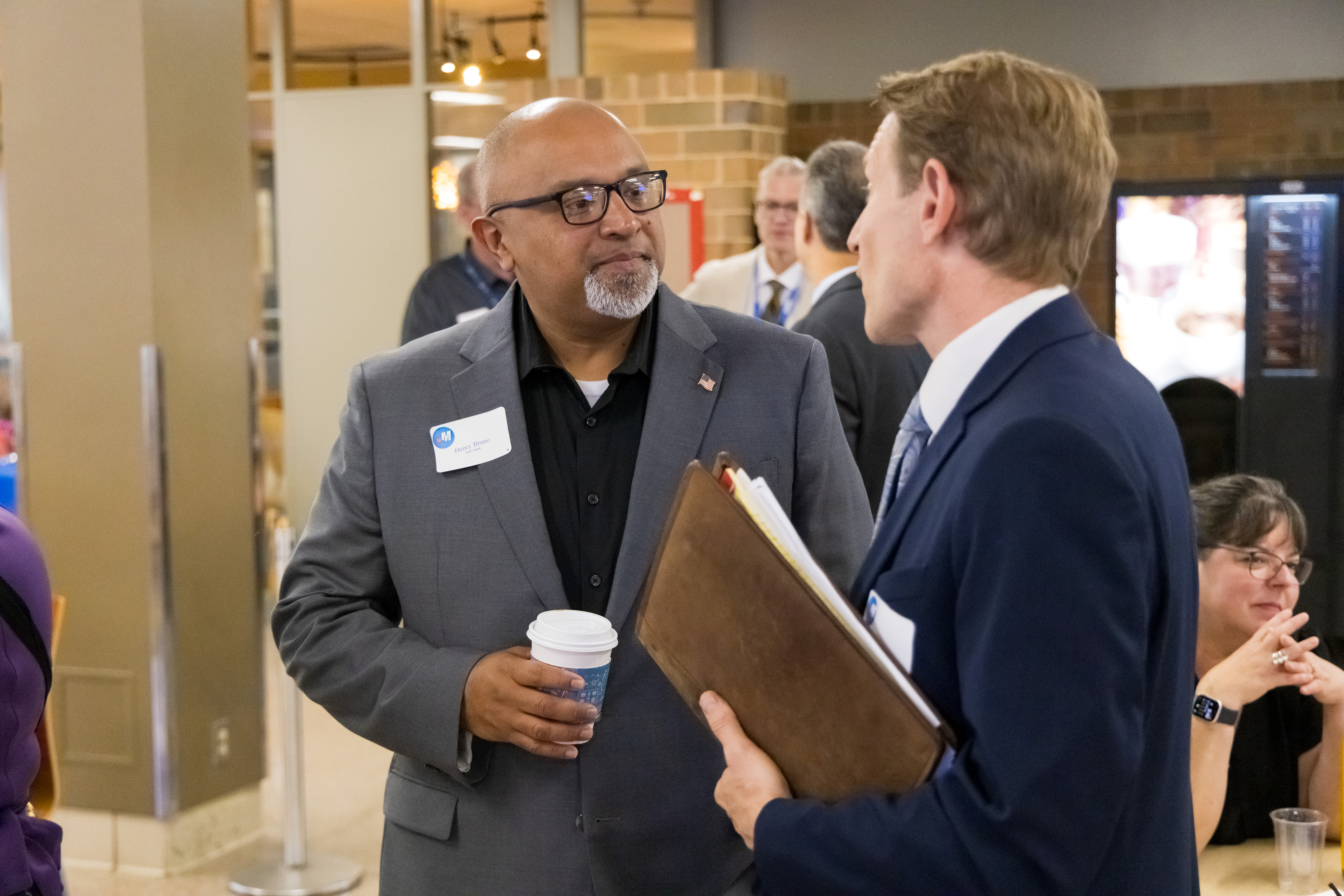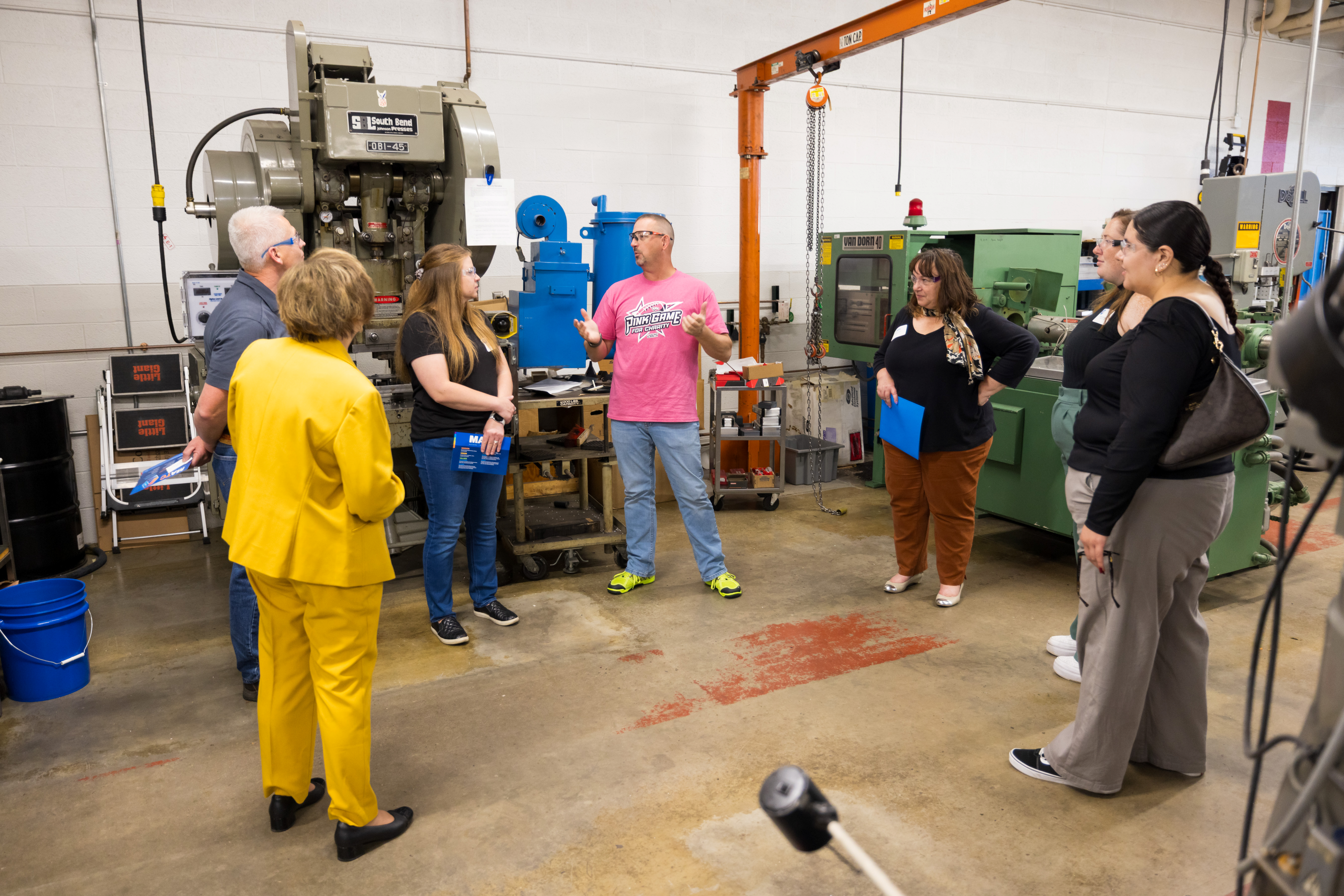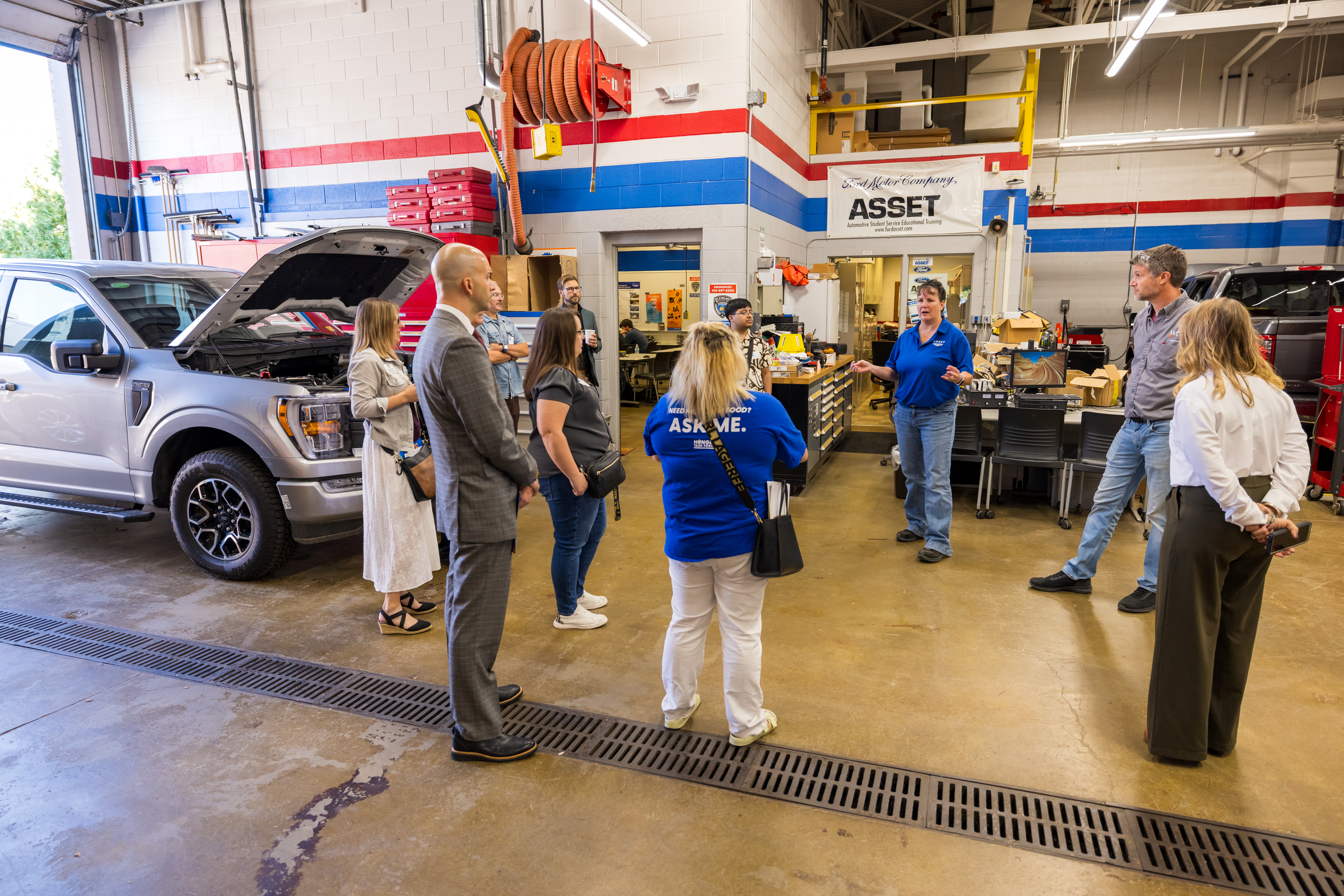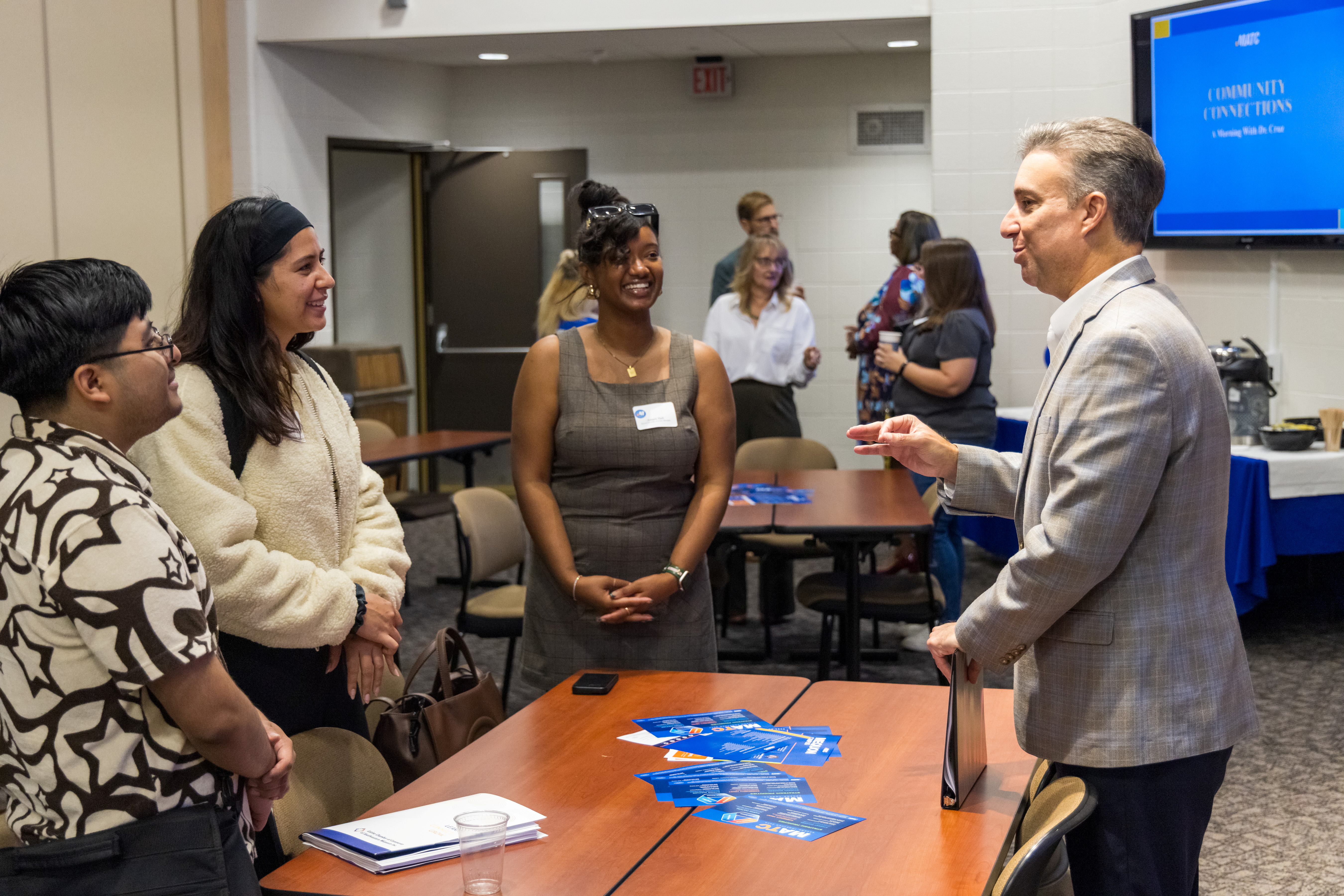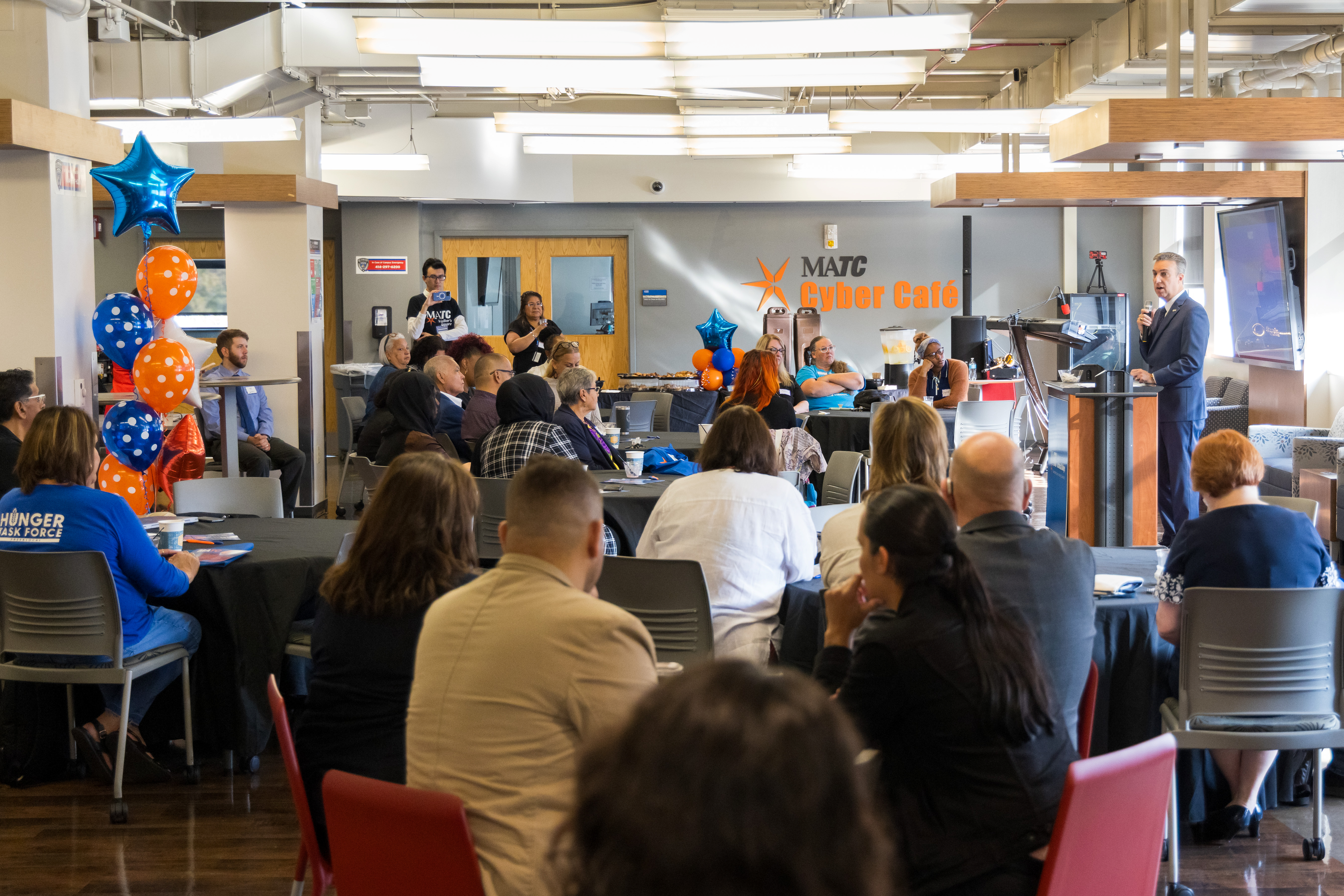You being here shows your support for MATC. And that can lead us to do great things in the future. Your insights and networks are essential to the success of this region. We can’t do our work alone.
Henry Bruno’s connection to Milwaukee Area Technical College runs deep.
After graduating from Milwaukee’s South Division High School, he attended classes at MATC before transferring to the University of Wisconsin-Milwaukee.
“MATC provided the foundation,” said Bruno, who is now a relationship banker for the financial services company BMO.
On Tuesday, September 16, Bruno was at MATC’s Oak Creek Campus strengthening that connection.
Bruno was among nearly 50 community leaders at the campus for Community Connections, a session hosted by MATC President Anthony Cruz that spotlighted the college’s signature programs, celebrated its successes and deepened its collaboration with community partners.
The five sessions were held at each of the college’s four campuses and at the Walker’s Square Education Center during the past week.
“This is a great idea,” Bruno said. “You can’t know enough about what is happening in your community. I believe it’s important to feel like you’re being seen, being heard, being appreciated and being served.”
For Dr. Cruz, the main objective of the sessions was to answer a simple question: How can we build a stronger college together?
The region is plagued by workforce shortages in almost every industry, and many areas in the MATC District face generational poverty. To fix those issues, the college and community must come together, Dr. Cruz said.
“MATC is emerging from under the radar, and we want to be part of the solutions,” Dr. Cruz said. “I believe MATC is a very strong community partner. We have become more visible, and we are more important than ever to the community. And we are always asking how we can serve our community better.”
The Community Connections events also served as a prelude to Dr. Cruz’s Presidential Investiture ceremony, which will be Friday, September 19, at the Downtown Milwaukee Campus. The formal academic ceremony will officially recognize Dr. Cruz as the college’s new leader.
Since starting as MATC’s 11th president in July 2024, Dr. Cruz has purposefully engaged students, faculty, staff and district residents. At the college’s campuses, he holds Coffee with Cruz, gatherings where he chats with students and staff while serving beverages. He hosted a series of presidential roundtables to gather input from the community on the college’s future. He has become active in numerous community groups, such as the Greater Milwaukee Committee, the Metropolitan Milwaukee Association of Commerce and the Rotary Club of Milwaukee.
The college also developed a new strategic plan, called Ascend Together.
Using that plan, Dr. Cruz has set some bold targets for the college: He wants enrollment to return to pre-COVID pandemic levels, and he wants to increase the income of graduates.
Increasing enrollment will not only help alleviate the workforce shortages in the area, but also ensure the viability of the college, he said. “We have been around for 100 years and we want to be around for 100 more years,” he said. “We need resources and funding to do that.”
Boosting wages for graduates will necessitate collaboration between the college and the community, Dr. Cruz said. Internally, the college needs to make sure students receive the proper skills and training, while business and industry in the region must pay MATC graduates what they are worth, he said.
Dr. Cruz also addressed several challenges and concerns affecting the college, including federal budget cuts and changes in federal education policy that forced the college to restructure certain programs. He also reassured the guests that the college would continue to put students first.
“We will always be fighting for our students. We wouldn’t be here without our students and I wouldn’t be a president without our students. We want to make sure we’re doing the best for our students and the best for our community,” Dr. Cruz said.
The first session was held Friday, September 12, at Walker’s Square, located on West National Avenue in Milwaukee. “We’re lucky that each campus has its own flavor,” Dr. Cruz said. “Our campuses reflect the entirety of our community.”
More than 100 representatives from two dozen community groups attended the event.
“We are in the heart of a loving, supportive community,” said Dr. Josephine Gomez, dean of Community Education and executive director of Walker’s Square. “These events are appropriately named. These are for us to connect to each other and learn more about who we are and what we do.”
The following week, nearly 150 community members attended sessions at the Downtown Milwaukee, West Allis, Oak Creek and Mequon campuses.
At all the sessions, guests toured classrooms spotlighting MATC’s programs, including Carpentry, Welding, Funeral Service, Tool and Die, Emergency Medical Services, Automotive Technology and Electrical Power Distribution.
“I know everyone is busy, but you being here shows your support for MATC,” Dr. Cruz told the visitors. “And that can lead us to do great things in the future. Your insights and networks are essential to the success of this region. We can’t do our work alone.”
About MATC: Wisconsin’s largest technical college and one of the most diverse two-year institutions in the Midwest, Milwaukee Area Technical College is a key driver of southeastern Wisconsin’s economy and has provided innovative education in the region since 1912. More than 30,000 students per year attend the college’s four campuses and community-based sites or learn online. MATC offers affordable and accessible education and training opportunities that empower and transform lives in the community. The college offers more than 180 academic programs — many that prepare students for jobs immediately upon completion and others that provide transfer options leading to bachelor’s degrees with more than 40 four-year colleges and universities. Overwhelmingly, MATC graduates build careers and businesses in southeastern Wisconsin. The college is accredited by the Higher Learning Commission.
